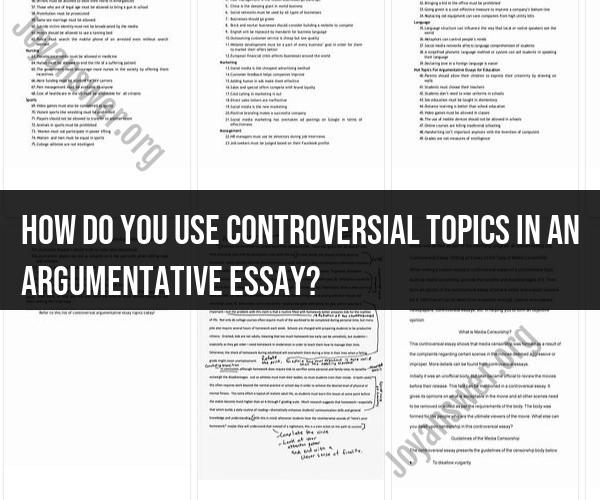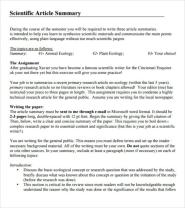How do you use controversial topics in an argumentative essay?
Using controversial topics in argumentative essays can be an effective way to engage readers and make your essay more compelling. However, it's essential to approach such topics with care and follow effective strategies to ensure your argument is well-reasoned and persuasive. Here are some strategies for utilizing controversial topics in your argumentative essays:
Choose a Well-Defined Controversy:
- Select a controversial topic that has clear and well-defined arguments on both sides. Avoid topics that are too broad or lack opposing viewpoints.
Thoroughly Research the Topic:
- Gather comprehensive information and data from reputable sources to support your argument. Be prepared to address counterarguments with evidence.
Clearly Define Your Thesis Statement:
- Your thesis statement should clearly state your position on the controversial issue. It should be specific, arguable, and debatable.
Acknowledge the Counterarguments:
- Address opposing viewpoints and counterarguments in your essay. This demonstrates that you've considered multiple perspectives and strengthens your position.
Use Reliable and Credible Sources:
- Cite information from authoritative sources such as academic journals, government reports, expert interviews, and respected news outlets to support your claims.
Present Evidence and Examples:
- Provide concrete evidence, statistics, and real-world examples to back up your arguments. Make sure your evidence is relevant to your thesis.
Analyze and Evaluate Evidence:
- Don't just present evidence; analyze it. Explain how the evidence supports your thesis and why it's more compelling than opposing evidence.
Appeal to Logic and Reason:
- Build your argument based on logic and reason. Use deductive and inductive reasoning to make your case.
Appeal to Emotions (Ethos, Pathos, Logos):
- Use emotional appeals (pathos) sparingly and strategically. Connect with your audience's emotions while maintaining a logical and ethical argument.
Maintain a Respectful Tone:
- Stay respectful and professional in your writing, even when discussing controversial topics. Avoid personal attacks or offensive language.
Organize Your Essay Effectively:
- Use a clear and organized structure for your essay. Include an introduction, body paragraphs, and a conclusion. Each paragraph should have a clear topic sentence and support your thesis.
Conclude Strongly:
- Summarize your main points and restate your thesis in the conclusion. Leave a lasting impression and a final thought for your readers to ponder.
Revise and Edit Carefully:
- Proofread your essay for clarity, grammar, and punctuation errors. Ensure that your argument flows logically and coherently.
Consider Your Audience:
- Tailor your arguments to your target audience. Understand their values, beliefs, and potential biases.
Seek Feedback:
- Share your essay with peers, teachers, or mentors to get constructive feedback. Others may spot weaknesses or suggest improvements.
Stay Informed:
- Keep up to date with developments related to your controversial topic. New information may strengthen or alter your argument.
Remember that the goal of an argumentative essay is not just to win a debate but to present a well-supported and well-reasoned case. While controversy can add intrigue to your essay, maintaining intellectual rigor and respecting differing viewpoints are essential to effective argumentation.











